Our mission is to develop innovative, transformative therapies for patients with devastating diseases through novel genome editing
Caribou Biosciences is a clinical-stage CRISPR genome-editing biopharmaceutical company dedicated to developing transformative therapies for patients with devastating diseases. The company’s genome-editing platform, including its Cas12a chRDNA technology, enables superior precision to develop cell therapies that are armored to potentially improve activity against diseases. Caribou is advancing CB-010 and CB-011 as off-the-shelf CAR-T cell therapies that have the potential to provide broad access and rapid treatment for patients with hematologic malignancies.
Leadership team
Executive leadership team
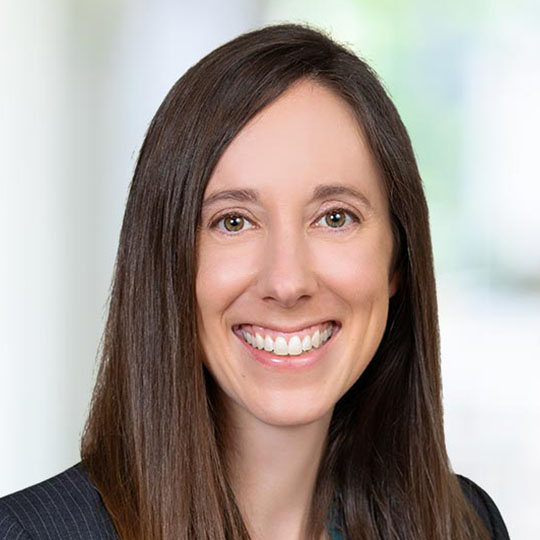
Rachel Haurwitz, PhD
Rachel is a co-founder of Caribou Biosciences and has been its president and chief executive officer and a director since the company’s inception in 2011. Rachel is an inventor on patents and patent applications covering multiple CRISPR-based technologies, and has co-authored several scientific papers in high-impact journals characterizing CRISPR-Cas systems. In 2014, she was named by Forbes Magazine to the “30 Under 30” list in Science and Healthcare, and in 2016, Fortune Magazine named her to the “40 Under 40” list of the most influential young people in business. In 2018, the Association for Women in Science recognized Rachel with the annual Next Generation Award. She serves on the board of directors for Biotechnology Innovation Organization (BIO). Rachel earned an AB in biological sciences from Harvard College and a PhD in molecular and cell biology from the University of California, Berkeley
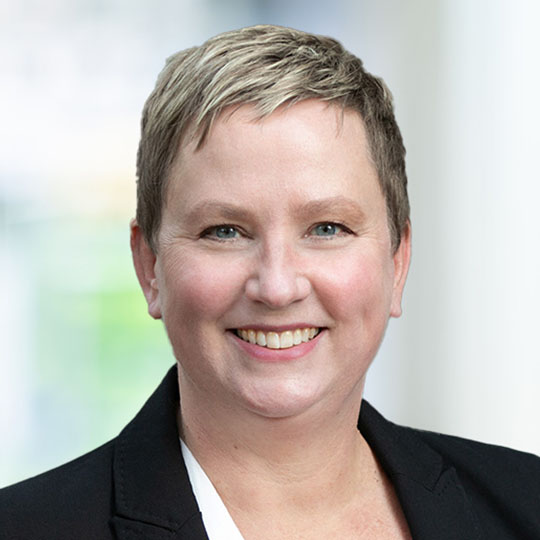
Tina Albertson, MD, PhD
Tina is the chief medical officer for Caribou Biosciences and is responsible for strategic leadership of the company’s clinical programs and the clinical, regulatory, and medical affairs functions. Tina brings 15 years of experience leading the development of cellular therapies and biologics. Previously, Tina was chief medical officer and head of development for Lyell Immunopharma, where she built and led the clinical development function and initiated two Phase 1 clinical trials evaluating CAR-T cell and TIL therapies in solid tumors. Prior to Lyell, she was vice president of global drug development at Juno Therapeutics, where she led the global development of BREYANZI (lisocabtagene maraleucel) from preclinical studies to the BLA filing that ultimately led to the initial FDA approval. She previously served as medical director of clinical development and experimental medicine at Seagen (formerly Seattle Genetics). Tina earned her MD from Stanford University and completed a clinical fellowship in pediatric hematology/oncology at Seattle Children’s Hospital and residency in pediatrics at Denver Children’s Hospital. She earned her PhD in cancer biology from the University of Washington and her BS in molecular biology from the University of Oregon.
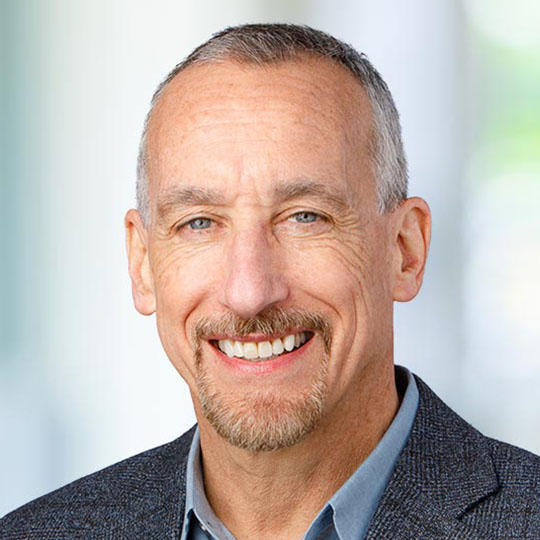
Steve Kanner, PhD
Steve is the chief scientific officer of Caribou Biosciences responsible for the company’s therapeutic discovery, research, translational, and development activities. Before joining Caribou in 2017, Steve was vice president, head of biology, at Arrowhead Pharmaceuticals, leading a department in discovery of RNAi therapeutics for oncology, genetic diseases, and other indications. Prior to Arrowhead Pharmaceuticals, he served in various positions of increasing responsibility in both oncology and inflammation drug discovery at Bristol-Myers Squibb, Agensys/Astellas, and Astex Pharmaceuticals. Steve currently serves on the board of directors at Specific Biologics and RegCell. He has authored over 90 publications in both peer-reviewed journals and books, and is an inventor on numerous US and foreign patents and patent applications. Steve received his undergraduate degree in genetics from the University of California, Berkeley and his PhD in immunology and microbiology from the University of Miami’s Miller School of Medicine. His post-doctoral fellowship was funded by a National Institutes of Health grant and was conducted at the University of Virginia.
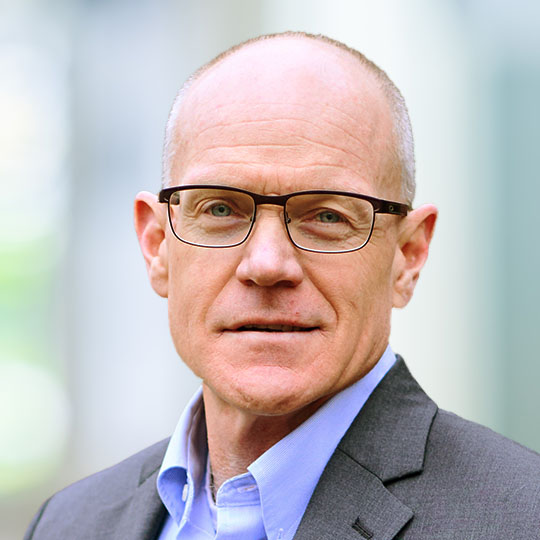
Tim Kelly
Tim is the chief technology officer of Caribou Biosciences and is responsible for the company’s technical operations strategy and execution, including seamless integration and alignment with Caribou’s corporate strategy. He brings over 25 years of experience in global clinical and commercial product development, manufacturing, and supply chain operations with both large and small biopharmaceutical and cell and gene therapy companies in the US and Europe. Tim joins Caribou from Oxford Biomedica Solutions, a spin-out of Homology Medicines, offering AAV product development and manufacturing services, where he was chief executive officer and board chair. Prior to Solutions, he was chief operating officer at Homology Medicines, Inc., where he led operations, process and platform development strategy, and product manufacturing strategy for gene therapy and gene editing technology. Earlier, he led technical operations at Sarepta, Shire, UCB, and Biogen, and was a fighter pilot in the US Air Force. Tim earned an MS/MBA from Troy State University and a BS, with emphasis in engineering mechanics, from the United States Air Force Academy.
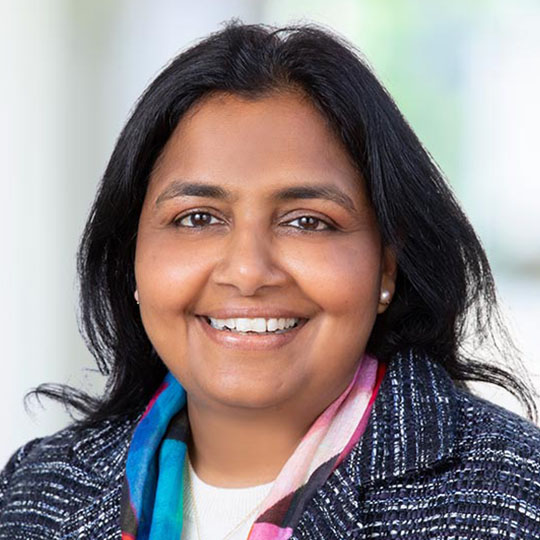
Ruhi Khan
Ruhi serves as chief business officer for Caribou Biosciences, responsible for developing and executing on business development strategy. She brings over 20 years of business development and investment management experience focused on the biotechnology and pharmaceutical industries. Most recently, Ruhi was the founder of an advisory firm that provided business development and finance advice to life sciences companies. In this role she had extensive senior management experience as head of business development for several oncology-focused companies. Previously, Ruhi was the head and vice president of business development for Acorda Therapeutics, Inc. Prior to Acorda, she worked in a similar capacity at Lexicon Pharmaceuticals, Inc. She started her career in venture capital with Fidelity Biosciences Group (now F-Prime Capital) and MPM Capital Advisors. Ruhi holds an MBA in health care management from The Wharton School, University of Pennsylvania, and an AB in biology from Harvard College.
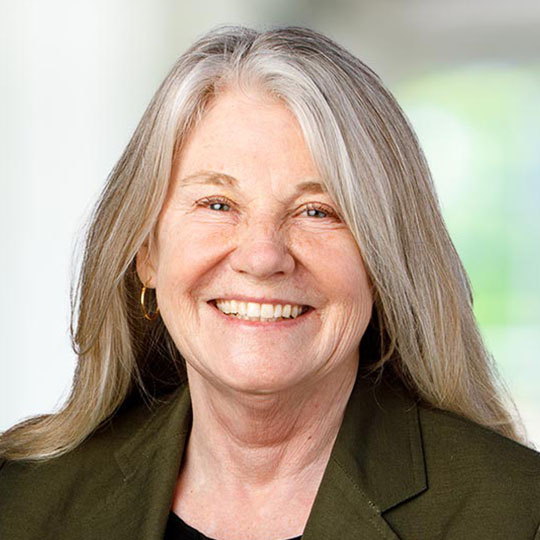
Barbara McClung, JD
Barbara serves as chief legal officer and corporate secretary for Caribou Biosciences, where she oversees and manages all legal functions, including corporate and board governance, securities reporting, compliance, contracts and corporate transactions, employment law, and intellectual property strategy. Prior to joining Caribou in 2015, she was General Counsel and Corporate Secretary at Intarcia Therapeutics, Inc. and also at Cygnus, Inc. Barbara began her career as a patent attorney with E. I. du Pont de Nemours and Company, and then joined Chiron Corporation where she was patent counsel for Chiron’s vaccine division. Barbara is a member of the California, Delaware, and Pennsylvania state bars, and is a registered patent attorney before the United States Patent and Trademark Office. She received a BA from the University of California, San Diego, an MA from the University of Pennsylvania, and a JD from the University of Pennsylvania Law School.

Sri Ryali
Sri Ryali is the chief financial officer for Caribou Biosciences and is responsible for strategic leadership of the company’s corporate finance, accounting, and investor relations and corporate communications functions. Most recently, Sri served as the chief financial officer of Codexis, Inc., a publicly traded enzyme engineering company. Previously, he served as chief financial officer of Eiger BioPharmaceuticals, Inc., then a publicly traded, commercial-stage company. Previously at Aimmune Therapeutics, Inc., Sri held roles of increasing responsibility, most recently as vice president of finance. Earlier in his career, he worked at Onyx Pharmaceuticals, Inc. and Amgen Inc. in finance-related positions of increasing responsibility. Sri earned an MBA from the UCLA Anderson School of Management and a BA from the University of California, Los Angeles, with a double major in economics and microbiology, immunology, and molecular genetics.
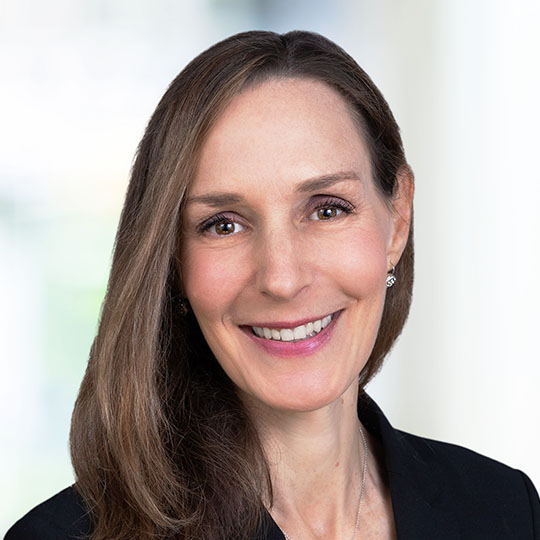
Reigin Zawadzki
Reigin Zawadzki serves as chief people officer for Caribou Biosciences and is responsible for leading the company’s human resources and people strategy. Reigin brings more than 20 years of experience leading human resources in the biotechnology industry. She has a proven track record for creating talent and culture practices that result in positive employee experiences that enable people to thrive. She understands the significance of having a diverse and inclusive culture to attract and retain great people and drive corporate goals and results. Previously, Reigin was vice president and chief human resource officer for Theravance Biopharma, responsible for organizational design, training and development, talent acquisition, employee engagement, legal compliance, and total rewards. At Theravance, she served in roles of increasing responsibility, supporting the organization through multiple stages of growth. She began her career in recruiting at Heidrick & Struggles. Reigin earned a BS from the Ohio State University.
Andrew Guggenhime
Andrew is the president and chief financial officer at Vaxcyte, Inc., and he brings over 20 years of financial, strategy, and operational experience in the biotech industry. At Vaxcyte, Andrew is responsible for leading the finance, corporate development and strategy, investor relations, corporate communications, human resources, IT, and facilities functions, and he helped lead Vaxcyte’s initial public offering in 2020. Prior to joining Vaxcyte, he served as chief financial officer of Dermira, Inc. through its acquisition by Eli Lilly and Company in February 2020. During his tenure at Dermira, Andrew successfully led a series of private, public, and alternative financings and helped scale the company, including through its pivotal transition into a commercial-stage organization. Previously, Andrew served as chief financial officer at several fast-growing biotech companies including Calistoga Pharmaceuticals, Inc., which was acquired by Gilead Sciences, Inc., and Facet Biotech Corporation, which was acquired by Abbott Laboratories. Earlier in his career, Andrew served as chief financial officer of PDL BioPharma, Inc. until Facet Biotech was spun off from PDL BioPharma. Prior to joining Facet Biotech, he served as chief financial officer for Neoforma, Inc., which was acquired by Global Healthcare Exchange, LLC. Andrew began his career in financial services at Merrill Lynch & Co. and Wells Fargo & Company. He earned his BA in international politics and economics from Middlebury College and his MBA from the J.L. Kellogg Graduate School of Management at Northwestern University.
Scott Braunstein, MD
Scott currently serves as chairman of the board and chief executive officer of Marinus Pharmaceuticals, a company dedicated to the development of innovative therapeutics to treat rare seizure disorders. He has held the role of operating partner at Aisling Capital since 2015. Prior to joining Marinus Pharmaceuticals, Scott served as chief strategy officer and chief operating officer at Pacira Pharmaceuticals, Inc. Earlier in his career, Scott served as a healthcare portfolio manager at Everpoint Asset Management and spent 12 years with J.P. Morgan Asset Management as a healthcare analyst and managing director on the US equity team and as portfolio manager of the J.P. Morgan Global Healthcare Fund. He also serves as a board member of Trevena, Inc. Scott previously served as a board member of Constellation Pharmaceuticals (acquired by MorphoSys AG in July 2021), Ziopharm Oncology, Inc., Esperion Therapeutics, Inc., and Protara Therapeutics, Inc. Scott began his career as a physician at the Summit Medical Group and as assistant clinical professor at Albert Einstein College of Medicine and Columbia University Medical Center. He received his medical degree from the Albert Einstein College of Medicine and his BS from Cornell University.
Rachel Haurwitz, PhD
Rachel is a co-founder of Caribou Biosciences and has been its president and chief executive officer and a director since the company’s inception in 2011. Rachel is an inventor on patents and patent applications covering multiple CRISPR-based technologies, and has co-authored several scientific papers in high-impact journals characterizing CRISPR-Cas systems. In 2014, she was named by Forbes Magazine to the “30 Under 30” list in Science and Healthcare, and in 2016, Fortune Magazine named her to the “40 Under 40” list of the most influential young people in business. In 2018, the Association for Women in Science recognized Rachel with the annual Next Generation Award. She serves on the board of directors for Biotechnology Innovation Organization (BIO). Rachel earned an AB in biological sciences from Harvard College and a PhD in molecular and cell biology from the University of California, Berkeley.
Dara Richardson-Heron, MD
Dara brings more than 25 years of leadership experience in the healthcare, corporate, nonprofit, and government sectors and currently serves as president and chief executive officer of DRH Consulting, LLC, executive coach at The ExCo Leadership Group, and board director at The Hastings Center for Bioethics and Barnard College. Her prior roles include chief patient officer for Pfizer, chief engagement officer and scientific executive for the National Institutes of Health (NIH), chief executive officer of the YWCA of the USA and chief executive officer of the Greater NYC Affiliate of Susan G. Komen for the Cure. Earlier in her career, she worked with United Cerebral Palsy Association as assistant executive director/national chief medical officer and served as executive medical director and special assistant to the chief executive officer at Consolidated Edison Company of New York. Dara earned an MD from New York University School of Medicine and a BA in biology from Barnard College.
David Johnson
David brings more than 30 years of commercial and operational experience in the biopharmaceutical industry. He currently serves as the chief operating officer at Vera Therapeutics. Prior, David was chief commercial officer at Global Blood Therapeutics (acquired by Pfizer) where he built the global commercial functions and led the launch of Oxbryta®. Previously, he spent 15 years at Gilead Sciences, Inc., where he held roles of increasing responsibility in the company’s commercial organization, including vice president, sales and marketing, liver disease business unit, where he was instrumental in building and leading the company’s liver disease franchise, including launching four medicines for hepatitis. During that time, David also led the antiviral business unit, where he helped launch and oversee the HIV franchise. Before Gilead, he had an 11-year tenure at GlaxoSmithKline, where he held various positions in sales, product marketing, business development, global commercial strategy, and portfolio development. David earned an MBA from the Kenan-Flagler Business School at the University of North Carolina and a BA in Business Marketing from the University of Puget Sound.
Natalie Sacks, MD
Natalie is an oncologist and drug developer with over 20 years of experience in the biotechnology industry and currently serves as a Partner for Novo Holdings Venture Investments. Previously, she served in development and executive leadership roles at multiple companies including at Onyx Pharmaceuticals (acquired by Amgen), Harpoon Therapeutics (acquired by Merck & Co.), Aduro, Exelixis, and Cell Genesys. She also serves on the board of directors of Zymeworks. Natalie held a faculty appointment at the University of California, San Francisco for more than ten years, where she was a volunteer assistant clinical professor of medicine in the Division of Hematology/Oncology. Natalie received her BA in mathematics from Bryn Mawr College, her MS in biostatistics from Harvard University School of Public Health, and her MD from the University of Pennsylvania School of Medicine.
Nancy Whiting, PharmD
Nancy is the chief executive officer at Recludix Pharma and has an established track record in all phases of drug development. She is a 15-year veteran of Seagen (formerly Seattle Genetics) and most recently served as executive vice president of corporate strategy. Nancy previously served as executive vice president of late-stage development, senior vice president of clinical development and medical affairs, and head of experimental medicine at Seagen. During her tenure at Seagen, she played a central role in the development of ADCETRIS®, PADCEV®, TUKYSA®, and TIVDAK®, in addition to several other pipeline compounds. Prior to her tenure in the biopharmaceutical industry, she had a career in clinical pharmacy serving as a clinical oncology pharmacist at Seattle Cancer Care Alliance, and previously as the staff pharmacist for the bone marrow transplant and acute leukemia department at Vancouver Hospital. Nancy received her PharmD degree from the University of Washington and a BS in Pharmacy from the University of British Columbia.
Ran Zheng
Ran currently serves as chief executive officer and on the board of directors of Landmark Bio, a public benefit limited liability company that was formed to accelerate life sciences innovation. Landmark Bio focuses on the emerging technologies of cell and gene therapies, mRNA, and other novel modalities to enable the development and industrialization of transformative medicines. Prior to joining Landmark Bio, Ran served as chief technical officer at Orchard Therapeutics, a commercial-stage global gene therapy company specializing in hematopoietic stem cell-based gene therapies. In that role, she led the technical operations organization and helped advance the company’s product pipeline, including contributing to the approval of Libmeldy® therapy in Europe, the first gene therapy product for metachromatic leukodystrophy. Ran has also held leadership positions at multiple biotechnology companies including Genzyme (now Sanofi) and Amgen. At Amgen, she held positions of increasing responsibility in process development, clinical and commercial manufacturing, as well as supply chain, and played a key role in building differentiated capabilities in manufacturing for clinical supply and commercial product launch to enable speed to clinic and speed to market strategies for Amgen’s innovative products. Ran received an MS in microbial engineering from the University of Minnesota and a BS in biology from Beijing Forestry University.
Jennifer Doudna, PhD
Jennifer is a co-founder of Caribou Biosciences. She is a professor of molecular and cell biology and chemistry at the University of California, Berkeley where she is the Li Ka Shing Chancellor’s Chair in Biomedical and Health Sciences; the president of the Innovative Genomics Institute; and investigator at the Howard Hughes Medical Institute; a senior investigator at the Gladstone Institutes; a faculty scientist in the physical biosciences division of Lawrence Berkeley National Laboratory; and a member of the National Academy of Sciences and the American Academy of Arts and Sciences. Her research seeks to understand how non-coding RNA molecules control the expression of genetic information and she has published extensively in the field of CRISPR-Cas biology. Jennifer’s work and that of her collaborator Dr. Emmanuelle Charpentier was recognized by the award of the Nobel Prize in Chemistry 2020 as well as a 2015 Breakthrough Prize. Her work on CRISPR-Cas systems has also been recognized with the Paul Janssen Award for Biomedical Research, a Lurie Prize in Biomedical Sciences, and the Princess of Asturias award. Jennifer was also named to the 2015 TIME Magazine’s TIME 100 list of the 100 most influential people in the world. After serving as a member of the Yale University faculty for eight years, during which time she was promoted to Henry Ford II Professor of Molecular Biophysics and Biochemistry, she joined the University of California, Berkeley faculty in 2002. Jennifer earned a PhD in biochemistry from Harvard University and was a postdoctoral scholar at the University of Colorado Boulder.
Martin Jinek, PhD
Martin is a co-founder of Caribou Biosciences and an assistant professor at the University of Zurich in the department of biochemistry. His research focuses on molecular mechanisms that orchestrate cellular regulation through protein-RNA interactions. His studies include biochemical and structural approaches to investigate these processes at the atomic level. Martin has contributed significantly to the field of CRISPR biology both through basic discovery and through the invention of new CRISPR-based technologies. He has won both the Human Frontier Science Program Fellowship and the EMBO Long-term Fellowship. Martin received an MS in chemistry from the University of Cambridge and a PhD in structural biology from the University of Heidelberg. He was a postdoctoral associate in the lab of Jennifer Doudna at the University of California, Berkeley.
Ami Bhatt, MD, PhD
Ami is assistant professor of medicine (Hematology) and of genetics at Stanford University where her research focuses on inspecting, characterizing, and dissecting the microbe-human interface. She is also the director of global oncology at the Center for Innovation in Global Health at Stanford and the co-founder of the non-profit organization Global Oncology, which has the goal of improving cancer outcomes for patients in impoverished settings. Ami earned her MD in medicine and PhD in biochemistry and molecular biology from the University of California, San Francisco and completed her residency and chief residency in internal medicine at Brigham and Women’s Hospital. Ami completed her post-doctoral fellowship at the Broad Institute of Harvard and MIT and completed her hematology/oncology fellowship at the Dana-Farber Cancer Institute.
Alexander Neuhof, MD
Alexander Neuhof, MD, MBA, is a senior director and global development lead for hematology-oncology at Pfizer. With more than nine years of industry experience, he has led multiple projects in late-stage development, life cycle planning and data generation for the hematology portfolio at Pfizer, including Maplirpacept, Elrexfio, Besponsa, Mylotarg and Bosulif and is author of multiple peer reviewed publications. Alex has trained in medical oncology and received his MD/PhD from the University of Erlangen in Germany.
Noopur Raje, MD
Noopur is a professor of medicine at Harvard Medical School, the director of the Center for Multiple Myeloma, and the Rita Kelley Chair in oncology at the Massachusetts General Hospital Cancer Center. She is a physician scientist with a primary focus on multiple myeloma and related plasma cell disorders. Noopur has focused on developing new promising therapies for multiple myeloma. Her laboratory efforts are aimed at identifying cellular signaling pathways that contribute to the survival and proliferation of myeloma cells in the bone environment and designing trials to specifically harness these. She is the co-chair of the NCI steering committee for multiple myeloma and a board member of the International Myeloma Society. Noopur received her MD from B.J. Medical College at Pune University. She trained in internal medicine at Massachusetts General Hospital and completed a fellowship in hematology and medical oncology at the Dana-Farber Cancer Institute.
Katy Rezvani, MD, PhD
Katy is the Sally Cooper Murray Chair in Cancer Research, professor of medicine, chief of section for cellular therapy, director of translational research, and director of the GMP Facility at MD Anderson Cancer Center. She also serves as executive director of MD Anderson’s Adoptive Cell Therapy Platform. Her research laboratory focuses on the role of natural killer (NK) cells in mediating immunity against hematologic and solid tumors. The goal of this research is to understand mechanisms of tumor-induced NK cell dysfunction and to develop strategies to genetically engineer NK cells to enhance their in vivo anti-tumor activity and persistence. Findings from Katy’s lab have led to the approval and funding of several investigator-initiated clinical trials of NK cell immunotherapy in patients with hematologic malignancies and solid tumors, as well as the first-in-human clinical trial of off-the-shelf CAR-transduced cord blood NK cells in patients with relapsed/refractory lymphoid malignancies. Katy completed her medical training at University College London, followed by Fellowships of the Royal College of Physicians and the Royal College of Pathologists of the United Kingdom, a PhD in immunology from Imperial College London, and postdoctoral studies at the National Institutes of Health.
Sundar Jagannath, MD
Sundar is the director of the Center of Excellence for Multiple Myeloma at The Tisch Cancer Institute and professor of medicine, hematology and medical oncology, at Mount Sinai School of Medicine, New York. With a medical career spanning over 40 years, he is a distinguished leader in multiple myeloma and bone marrow transplantation. Sundar’s clinical and translational research has resulted in more than 180 peer reviewed articles, 150 abstracts, and 30 book chapters. After earning his medical degree and training, Sundar completed a medical oncology fellowship at The University of Texas MD Anderson Cancer Center in Houston, Texas. Prior to Mount Sinai, he also served at University of Arkansas and Saint Vincent’s Comprehensive Cancer Center, in leadership roles in the myeloma programs.
Stephen J. Schuster, MD
Stephen is the Robert and Margarita Louis-Dreyfus professor of chronic lymphocytic leukemia and lymphoma and the director of the lymphoma program and lymphoma translational research at the Perelman School of Medicine at the University of Pennsylvania, with Penn Medicine’s Abramson Cancer Center. With a medical career spanning over 40 years, he is a world-renowned hematologist-oncologist with expertise in lymphoma and related diseases. His clinical and translational research has resulted in over 200 peer reviewed articles and participation in numerous clinical trials. After graduating AOA from Jefferson Medical College and completing his residency at Pennsylvania Hospital, Stephen completed clinical and research fellowships at the Cardeza Foundation for Hematologic Research. In 1989, he became a member of the Cardeza Foundation at Jefferson Medical College. Stephen joined the University of Pennsylvania in 1998.
Cameron Turtle, MBBS, PhD
Cameron is professor and CLEARbridge chair in cancer immunotherapy at the University of Sydney, Australia and a clinical academic at Royal North Shore Hospital. His research focuses on understanding the characteristics of distinct human T cell subsets, factors governing the immune response to cancer, and the development of novel tumor immunotherapies. Cameron has led clinical and laboratory research teams that conduct multiple investigator-initiated phase 1/2 clinical trials of T cell immunotherapies for patients with hematologic malignancies. Prior, Cameron was professor and Anderson Family endowed chair for immunotherapy at Fred Hutchinson Cancer Center (FHCC) and professor of medicine at the University of Washington. He is co-chair of the cellular immunotherapy for cancer working committee at the Center for International Blood and Marrow Transplantation Research (CIBMTR) and has served as Chair of the American Society of Hematology Scientific Committee on Transplantation Biology and Cellular Therapies. Cameron trained as a hemato-oncologist, obtaining Fellowship of the Royal Australasian College of Physicians and the Royal College of Pathologists of Australasia, earned his PhD in dendritic cell immunotherapy at the University of Queensland in Brisbane, Australia, and completed his postdoctoral research fellowship in T cell immunotherapy at Fred Hutchinson Cancer Center.
Terri Laufer, MD
Terri Laufer, MD, is an emeritus associate professor of medicine at the Perelman School of Medicine at the University of Pennsylvania and an attending rheumatologist at the Penn Presbyterian Medical Center and Philadelphia VA Medical Center. Dr. Laufer has more than 35 years of clinical experience treating patients with autoimmune disease, including lupus. Her laboratory research focuses on T cell development and major histocompatibility complex (MHC)/human leukocyte antigen (HLA) class II-positive antigen presenting cells that mediate responses to pathogens and drive autoimmunity. Dr. Laufer earned her AB degree in biochemistry from Princeton University and completed an MD degree at Columbia University, followed by a rheumatology fellowship at Brigham and Women's Hospital and postdoctoral research at Harvard University.
Partnering and alliances
Caribou has an extensive CRISPR technology IP portfolio, including an exclusive license from The Regents of the University of California and the University of Vienna to the foundational CRISPR-Cas9 IP invented by Jennifer Doudna, Emmanuelle Charpentier, and their colleagues. Caribou licenses this CRISPR-Cas9 IP and certain of its own Cas9 IP to other companies for use in multiple market sectors including but not limited to research tools, transgenic research animals, internal research, diagnostics, and industrial biotechnology. For information regarding partnering and licensing, email licensing@cariboubio.com

